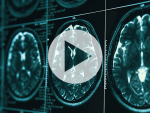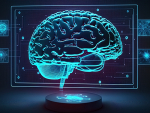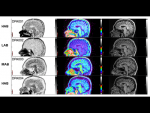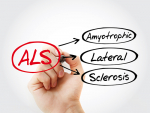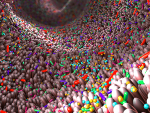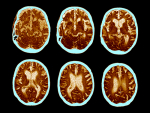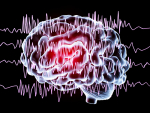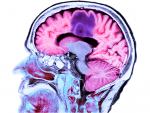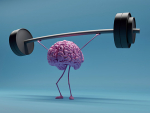Displaying items by tag: department of neurology
In a mouse model, border-associated macrophages, not microglia, were essential for the neuroinflammation that precedes neurodegradation. Targeting this subset could be a disease-modifying therapy in neurodegenerative disease.
Tagged under
UAB scientist aims to inspire children from underrepresented backgrounds to pursue a career in science and help them understand that achieving their passions is possible.
Tagged under
IN8bio has opened a new Birmingham facility, a 10,000-square-foot advanced research and development laboratory in the Martin Biscuit Building at Pepper Place.
Tagged under
UAB was involved in clinical trials that led to an accelerated approval of the drug lecanemab, commercially known as Leqembi, in January 2023. A UAB Alzheimer’s expert discusses the therapy and what full approval means for the AD field.
The scholarship recognizes outstanding natural sciences, engineering and mathematics students by awarding up to $7,500 for academic expenses.
Tagged under
- release
- honors college
- college of arts and sciences
- school of health professions
- school of engineering
- department of biomedical engineering
- neuroscience
- center for community outreach development
- office of national and international fellowships and scholarships
- office of the provost for student and faculty success
- department of neurology
- school of medicine
- national and international fellowships and scholarships
As a caregiver to his adult son, Anderson was able to earn his master’s degree at UAB and turn his interest in magic arts into deception research and a second career in academics.
Tagged under
Neuroengineering blends engineering principles with neuroscience to find better ways to treat neurological conditions and to build on understanding how the brain and nervous system function.
Tagged under
The findings indicate that inflammation is present in the brain early in the disease’s progression, but how inflammation affects disease progression remains unknown.
Tagged under
The clinic, supported by an Alabama Department of Commerce Innovation Fund grant, makes it easier for patients to get all the services they need in one place.
Tagged under
The study, utilizing the relatively new field of metagenomics, demonstrated an imbalance in the gut microbiome of patients with Parkinson’s disease.
Tagged under
The AHEAD study is looking to recruit people at risk for developing Alzheimer’s disease for a new study.
Tagged under
The gift will advance the use of induced pluripotent stem cells as a potential therapy for Alzheimer’s disease.
An internationally recognized clinician and researcher in Parkinson’s disease, UAB’s David Standaert, M.D., Ph.D., has been honored with a lifetime achievement award from the Parkinson’s Association of Alabama.
Tagged under
The new technique to predict seizure clusters could, if confirmed, have a profound impact on patients with drug-resistant epilepsy who are prone to seizure clusters.
Tagged under
Tagged under
- release
- uab medicine
- uab hospital
- department of obstetrics and gynecology
- department of medicine
- division of clinical immunology and rheumatology
- department of physical medicine and rehabilitation
- division of otolaryngology
- division of cardiovascular disease
- division of cardiology
- division of cardiothoracic surgery
- department of surgery
- division of gerontology geriatrics and palliative care
- division of endocrinology diabetes and metabolism
- division of pulmonary allergy and critical care medicine
- oneal comprehensive cancer center
- department of neurology
- department of neurosurgery
- division of gastrointestinal sugery
All of the newly diagnosed glioblastoma multiforme patients enrolled in a Phase 1 clinical trial have exceeded both their median and expected progression-free survivals. Two patients, to date, have exceeded their expected overall survival.
Tagged under
Radiofrequency ablation precisely delivers heat energy that can destroy lesions within the brain that are the cause of seizures.
Tagged under
With the number of Americans with dementia expected to increase dramatically, UAB’s new brain health clinics point the way to improving brain health over a lifespan.
Tagged under
Adeel Memon will be the first graduate of the UAB neuroengineering Ph.D. program during the 2022 spring graduate commencement ceremony on April 29.
Tagged under
The investigational drug masitinib appears to inhibit parts of the immune system that may be overactive in ALS.
Tagged under



